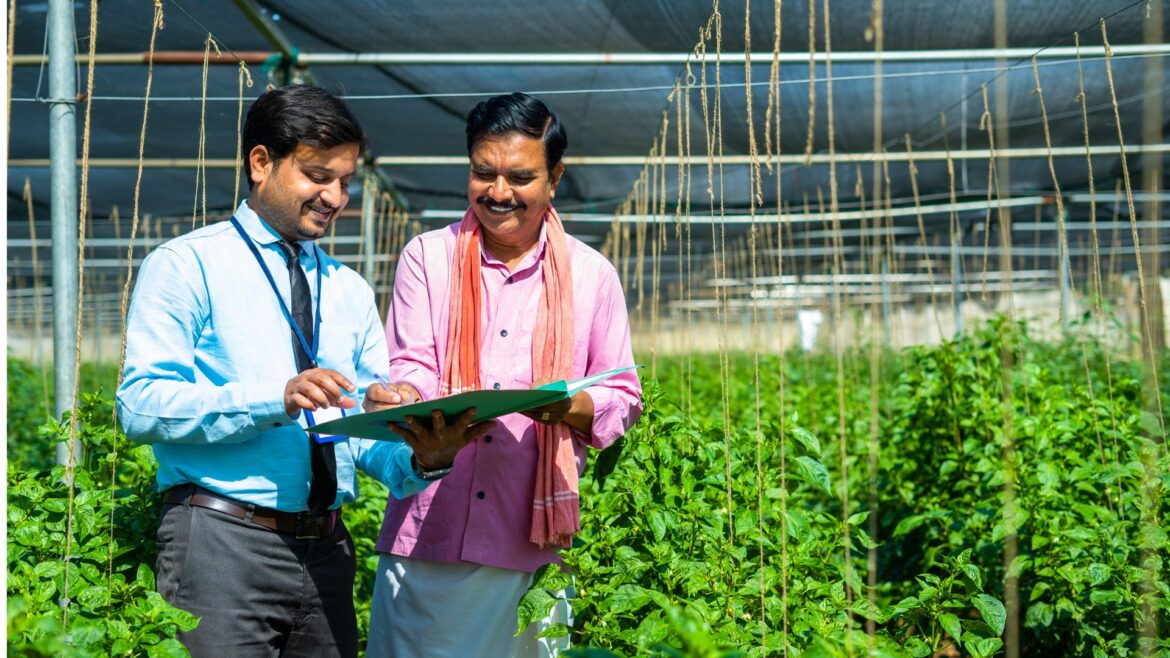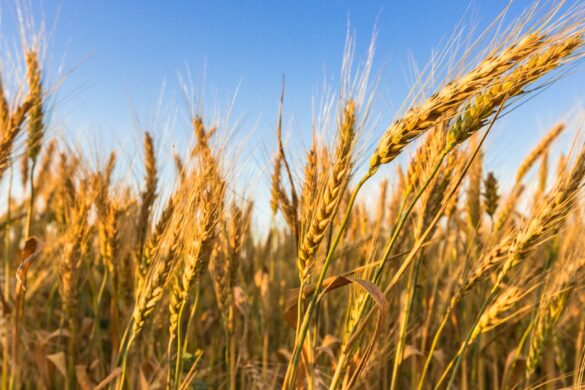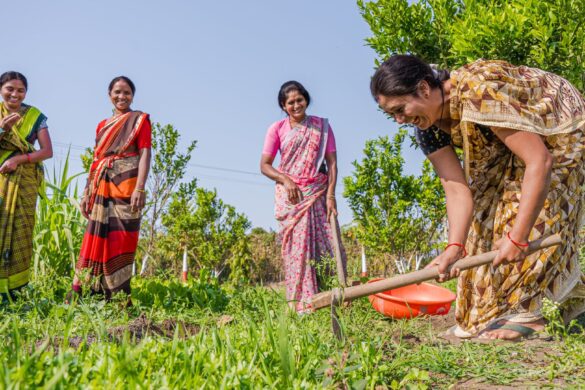Table of Contents
List of major schemes and programmes initiated by the Department of Agriculture & Farmers’ Welfare (DA&FW) to improve livelihoods
The various schemes/ programmes of the Government of India under the Department of Agriculture & Farmers’ Welfare are meant for the welfare of farmers by increasing production, remunerative returns and income support.
Budget Estimate
The Government has substantially enhanced the budget allocation of Department of Agriculture & Farmers Welfare (DA&FW) from ₹ 21933.50 crore BE during 2013-14 to ₹ 1,22,528.77 crore BE during 2024-25.
Pradhan Mantri Kisan Samman Nidhi (PM-KISAN)
PM-KISAN is a direct income support scheme under which ₹6,000 per year is provided in three equal instalments to all eligible landholding farmers to help them meet agricultural expenses. Under this scheme Over 11 crore farmers receive direct benefits of ₹6,000 per year, helping them with input costs. This has provided albeit small but improved financial security to small and marginal farmers. This has enabled them to buy seeds, fertilisers and essential farm inputs in timely manner. It has also provided some semblance of social safety net in emergencies like COVID-19.
Pradhan Mantri Kisan Maan Dhan Yojana (PM-KMY)
PM-KMY is a pension scheme for small and marginal farmers (SMFs), providing a monthly pension of ₹3,000 after the age of 60 years, with equal contributions from the farmer and the government. Till now more than 23 Lakh farmers have joined the scheme. This scheme encourages farmers to give thought to long term financial planning and has ensured financial independence for elderly farmers.
Pradhan Mantri Fasal Bima Yojana (PMFBY) / Restructured Weather-Based Crop Insurance Scheme (RWBCIS)
PMFBY provides insurance coverage to farmers against crop loss due to natural calamities, pests, and diseases. Over 40 crore farmer applications have been enrolled and ₹1.4 lakh crore has been paid as claims to farmers. This scheme helps farmers to recover losses quickly.
RWBCIS covers weather-related risks, such as unseasonal rains, drought, frost, or temperature fluctuations.
Modified Interest Subvention Scheme (MISS)
MISS offers interest subvention (subsidy) on short-term crop loans to farmers at 7% interest, with an additional 3% incentive for timely repayment, reducing the effective interest rate to 4%. This helps reduce farmer debt burden as well as prevent loan defaults.
Agriculture Infrastructure Fund (AIF)
AIF is a financing facility of ₹1 lakh crore to provide subsidized credit for infrastructure development like cold storage, warehouses, and primary processing centers. Till now over 30,000 projects approved under AIF.
Formation and Promotion of 10,000 new Farmer Producer Organizations (FPOs)
Forming FPOs encourages collective farming by organizing farmers into FPOs to improve bargaining power, reduce costs, and increase market access. Till now more than 6,000 FPOs have been formed. This has reduced reliance on middlemen and farmers are able to sell in bulk making higher profits.
National Beekeeping and Honey Mission (NBHM)
NBHM promotes scientific beekeeping to increase honey production, improve pollination for better crop yields, and generate rural employment. Under this scheme increased honey production has benefitted over 1 lakh beekeepers.
Namo Drone Didi
Name Drone didi program was Introduced to empower women self-help groups (SHGs) by training them to use agricultural drones for spraying pesticides, fertilizers, and monitoring crops. This helps to reduce labor costs, increase efficiency and provide technological expertise to women opening employment avenues.
National Mission on Natural Farming (NMNF)
NMNF aims to reduce dependency on chemical fertilizers and promote zero-budget natural farming to improve soil health and sustainability. Under this mission 1 lakh hectares have been brought under natural farming and 4.78 lakh farmers are trained on zero-budget farming techniques.
Pradhan Mantri Annadata Aay Sanrakshan Abhiyan (PM-AASHA)
PM-AASHA abhigyan ensures remunerative prices for crops through three components:
- Price Support Scheme (PSS) – Government purchases crops at MSP.
- Price Deficiency Payment Scheme (PDPS) – Direct payment to farmers if market price falls below MSP.
- Private Procurement & Stockist Scheme (PPSS) – Involvement of private players in procurement.
With this scheme farmers get better returns for their crops, reducing financial stress and encouraging crop diversification.
Agri Fund for Start-Ups & Rural Enterprises (AgriSURE)
AgriSURE supports agri-tech start-ups and rural entrepreneurship with seed funding, mentorship, and incubation. Under the AgriSURE scheme 1,000 agri-startups have been supported. This has enabled technology-driven solutions like AI, IoT, and drone tech. Many start-ups and their applications have enabled farmers with real-time data on soil health, weather, and pest control.
Per Drop More Crop (PDMC)
PDMCaims at efficient water management through drip irrigation and micro-irrigation techniques. This program has helped to increase water use efficiency by 50% with increase in productivity by 25-30%. Farmers end up saving water, electricity and labour.
Sub-Mission on Agriculture Mechanization (SMAM)
SMAM provides subsidies on farm machinery and equipment to reduce labor dependency and enhance productivity. Over 2.6 lakh machines have been distributed at subsidised rates. This helps farmers procure equipments, adopt technology based practices, reduce labor dependency and increase efficiency in farm operations.
Paramparagat Krishi Vikas Yojana (PKVY)
PKVY Promotes organic farming by incentivizing farmers to adopt chemical-free agricultural practices. Organic farming reduces soil degradation and farmers also get higher prices for the organic products At present over 8 lakh hectares of land is under organic farming
Soil Health & Fertility (SH&F)
SH&F program includes the Soil Health Card Scheme, which provides farmers with soil analysis reports and customized fertilizer recommendations. With these analysis and recommendations farmers are able to optimise fertiliser use, saving costs and improving yields. Till now more than 23 crore soil health cards have been distributed.
Rainfed Area Development (RAD)
RAD programme is a key initiative under the National Mission for Sustainable Agriculture that supports Integrated Farming Systems (IFS) for rainfed farmers i.e. farmers in the area where rain is the primary source of water for the crops. Under this soil and water conservation methods are deployed like rainwater harvesting structures, farm ponds, check dams etc with drip and sprinkler irrigation to reduce water wastage. Under this programme drought-resistant crops, pulses, millets, and oilseeds are also promoted to improve productivity in rainfed regions. This helps to build resilience of small and marginal farmers by improving productivity, resource efficiency, and income diversification.
Agroforestry
Agroforestry encourages planting trees on farms to improve soil fertility, increase carbon sequestration, and generate additional income.
Crop Diversification Programme (CDP)
CDP encourages farmers to shift from water-intensive crops (like paddy and wheat) to pulses, oilseeds, and horticultural crops. This reduces over dependence on rice and wheat while introducing crops with more nutritional value which can help farmers get more income. This also helps in maintaining soil fertility.
Sub-Mission on Agriculture Extension (SMAE)
SMAE’s focus is on strengthening agriculture extension services by promoting farmer training, technology dissemination, awareness campaigns, and digital advisory services. The objective is to make these services farmer-driven and enable the farmers to deploy improved agronomic practices.
Sub-Mission on Seed and Planting Material (SMSP)
SMSP aims to promote new technologies in seed production, processing and testing. The objective is to produce seeds with enhanced quality with better seed multiplication chain. Seed Village Programme under SMSP ensures farmers are able to have high quality seeds at reasonable costs. SMSP also works towards creating dedicated seed banks to safeguard against unforeseen circumstances like natural calamities. Under this mission, government also provides 50-60% subsidies on various categories of seeds.
National Food Security and Nutrition Mission (NFSNM)
Malnutrition is one of the biggest challenges of our country. NFSNM aims to increase food production in cereals, pulses, and oilseeds while addressing malnutrition. The focus is to have nutrition rich crops like pulses and millets. Promote better diet and higher productivity at the same time.
Integrated Scheme for Agriculture Marketing (ISAM)
The integrated scheme for Agriculture Marketing undertakes development of modern agricultural markets, including e-NAM (National Agricultural Market), an online trading portal for transparent price discovery and realisation of the farmers. Under this scheme storage facilities like godowns and warehouses are developed in rural areas to enable farmers with longevity of their produce and avoid distress sale. Under this scheme assistance is available to individuals, farmers, farmer groups, agri-preneurs, registered Farmer Producer Organizations (FPOs), cooperatives, and state agencies. Subsidies are also provided by agencies like NABARD and NCDC.
Mission for Integrated Development of Horticulture (MIDH)
This mission promotes horticulture crops, including fruits, vegetables, spices, and medicinal plants.
National Mission on Edible Oils (NMEO) – Oil Palm
This mission focuses on increasing domestic palm oil production to reduce import dependency. The strategy thus proposed includes establishment of seed gardens and nurseries to increase production of seedlings, assure domestic availability. This scheme also aims increase drip irrigation coverage under palm oil, diversification of area and inter-cropping during the pre-requisite gestation period of 4 years.
National Mission on Edible Oils (NMEO) – Oilseeds
This mission encourages the cultivation of oilseeds (mustard, soybean, groundnut, sunflower, sesamum etc.) through incentives and research support. The targets set for Year 2030-31 are to increase primary oilseed production to 69.7 million tonnes (from 39 million tonnes in 2022-23). Increase domestic edible oil production to 25.45 million tonnes and meet around 72% of our projected domestic requirement together with NMEO-OP (Oil Palm). Expand oilseed cultivation by an additional 40 lakh hectares by targeting rice and potato fallow lands, promoting intercropping, and promoting crop diversification.
Mission Organic Value Chain Development for North Eastern Region
Promotes organic farming and certification for farmers in the north eastern states of Arunachal Pradesh, Assam, Manipur, Meghalaya, Mizoram, Nagaland, Sikkim and Tripura. The scheme aims to development of certified organic production in a value chain mode to link growers with consumers and to support the development of entire value chain starting from inputs, seeds, certification, to the creation of facilities for collection, aggregation, processing, marketing and brand building initiative.
Digital Agriculture Mission
Digital Agriculture MissionFocuses on technology-driven agriculture, including AI, blockchain, remote sensing, and drones for precision farming. With new age devices and applications farmers will be able to get real time data on the quality of soil, irrigation requirements, climatic conditions, plant disease and pests. This will help reduce crop losses.
National Bamboo Mission
National Bamboo Mission, in order to rejuvenate the underdeveloped and high potential bamboo industry encourages bamboo cultivation and its commercial use in handicrafts, furniture, and construction to increase farmers’ income.










